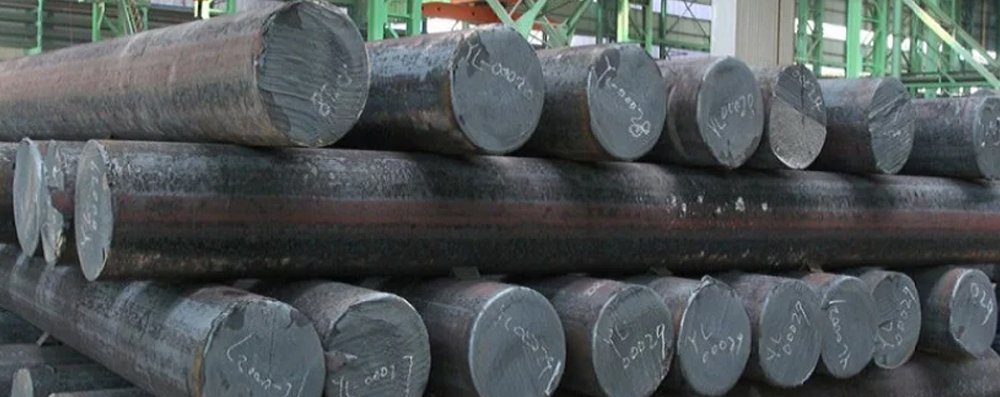Introduction
ST52.3 is a low-carbon manganese steel grade known for its high strength, excellent weldability, and good toughness. Classified under DIN 17100 (and equivalent to S355J2G3 under EN 10025), ST52.3 is widely used in structural and engineering applications. Its balanced chemical composition allows for easy machining, forging, and welding, making it a preferred material across numerous industries.
Uses/Applications of ST52.3 Grade:
- Structural steelwork for bridges, buildings, and offshore platforms
- Manufacturing of cranes, lifting equipment, and heavy machinery
- Construction of truck frames, trailers, and chassis
- Pressure vessels and boiler components (non-critical services)
- Railway vehicles and parts
Properties of ST52.3 Grade:
- High tensile and yield strength
- Good impact resistance even at sub-zero temperatures
- Excellent weldability without the need for preheating
- Good machinability
- Fine-grained microstructure for enhanced mechanical properties
- Suitable for normalized or as-rolled delivery conditions
- Automotive frames and brackets
- Hydraulic cylinders and mechanical parts
Chemical Composition (Typical):
| Element | Content (%) |
| Carbon (C) | ≤ 0.20 |
| Manganese (Mn) | 1.60 max |
| Phosphorus (P) | ≤ 0.035 |
| Sulfur (S) | ≤ 0.035 |
| Silicon (Si) | ≤ 0.55 |
| Iron (Fe) | Balance |
Mechanical Properties (Typical):
| Property | Value |
| Tensile Strength | 490 – 630 MPa |
| Yield Strength (minimum) | 355 MPa (for ≤ 16 mm thickness) |
| Elongation (in 50 mm) | ≥ 21% |
| Charpy Impact Value | ≥ 27 Joules at -20°C |
| Brinell Hardness (HB) | 150 – 180 HB |
Physical Properties:
| Property | Value |
| Density | 7.85 g/cm³ |
| Modulus of Elasticity | 210 GPa |
| Thermal Conductivity | ~50 W/m·K |
| Specific Heat Capacity | ~450 J/kg·K |
| Electrical Resistivity | ~0.15 µΩ·m |
Forging:
Forging of ST52.3 steel should be performed between 1100°C and 850°C:
- Initial forging temperature around 1100°C
- Finish forging temperature around 850°C
- After forging, cooling slowly in the furnace or under insulation is recommended to avoid cracking.
Heat Treatment:
Typically supplied in the normalized or as-rolled condition.
- Normalizing Temperature: 890°C to 950°C, followed by air cooling.
- Stress Relieving: After heavy forming or welding, stress relief at around 530°C – 580°C is recommended.
Dimensional Tolerances:
Produced in accordance with DIN 1013, EN 10025-2 standards:
- Hot Rolled Bars: Standard rolling tolerances.
- Cold Drawn Bars: Precision tolerances with tighter limits.
Custom tolerances can be provided on request for critical engineering applications.
- Hardening/Tempering: Not commonly done; surface hardening can be achieved if required.
Note: This material is not intended for through-hardening by heat treatment.
Machinability:
ST52.3 offers good machinability relative to structural carbon steels:
- Machining is easier in normalized conditions compared to as-rolled.
- Carbide or high-speed steel cutting tools are preferred.
- Adequate cooling and cutting speeds enhance tool life and surface finish.
- Machinability Rating: Approximately 60%-70% of free-machining steels like AISI 1112.
Weldability:
ST52.3 possesses excellent weldability:
- Weldable by all conventional methods: TIG, MIG, SMAW, SAW.
- No preheating necessary for thicknesses under 15 mm; thicker sections may benefit from preheating at ~100°C–150°C.
- Low hydrogen welding processes are recommended to avoid hydrogen embrittlement.
- Post-weld heat treatment or stress relieving may be considered for high-stress applications.
Corrosion Resistance:
- Moderate corrosion resistance under dry atmospheric conditions.
- Susceptible to rusting without protective coatings.
- For enhanced performance, applications may require painting, galvanizing, or powder coating.
Available Form:
- Hot Rolled Round Bars
- Hot Rolled Flats, Squares, and Hex Bars
- Cold Drawn Bright Bars
- Forged Bars
- Plates and Sheets
- Coils
- Custom Length Bars (cut to specification)
Available in bright, black, normalized, and as-rolled finishes depending on application requirements.
Conclusion:
ST52.3 carbon steel bar is a robust and versatile material offering a strong balance of strength, toughness, and weldability. Suitable for demanding structural, mechanical, and automotive applications, it remains a popular choice for engineers worldwide. With appropriate surface protection, ST52.3 can deliver long service life even in moderately corrosive environments. Its widespread availability and excellent fabrication characteristics make it a cost-effective solution for both standard and specialized applications.
Related Products :20C8, ASTM A36, 20MN2, 55C8, 40C8, C45, ASTM SA-105, C50, C20, C55, EN3B, C55 Mn2, C60, C45, EN9, EN8, EN8D, IS 2062, EN43B, S355J2G3, S40C, SAE 1010, SAE 1018, ST52.3, 20MN2, Maps


